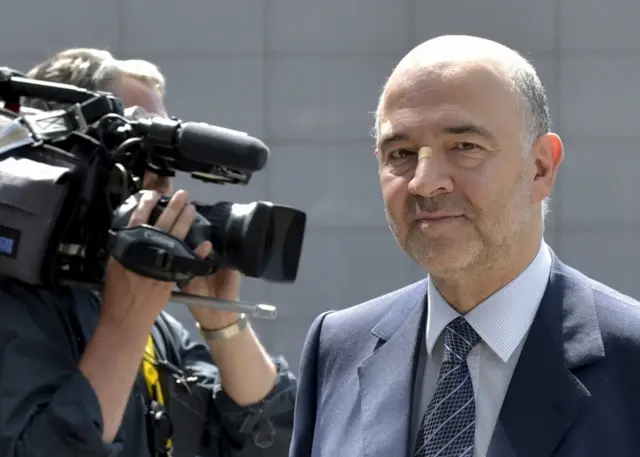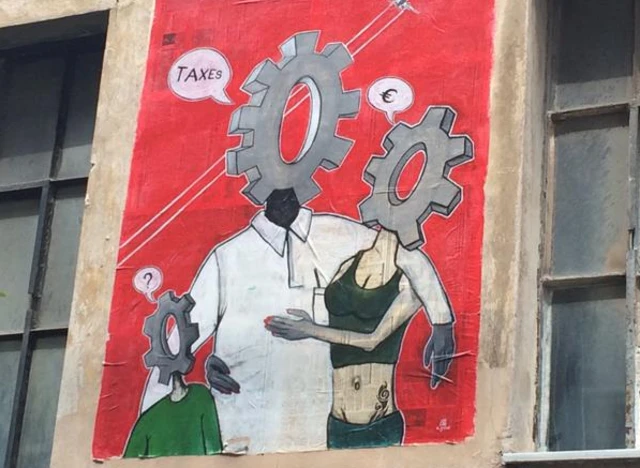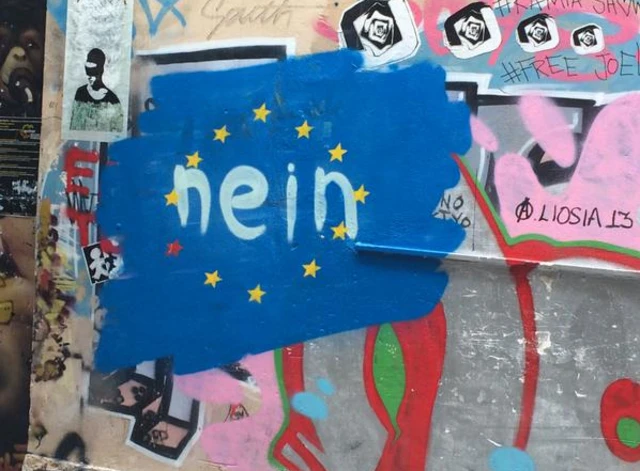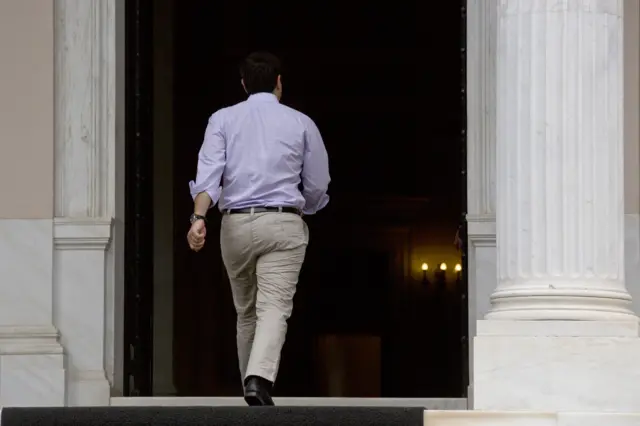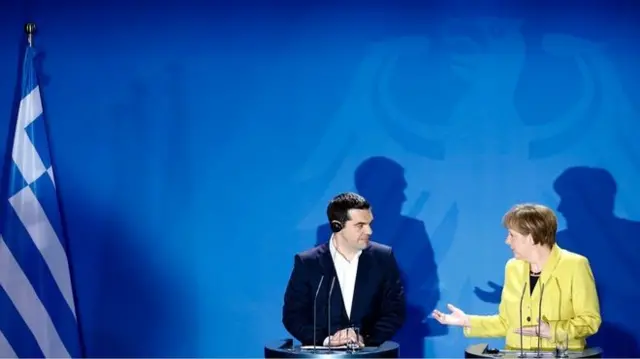Why was the referendum held?published at 13:58
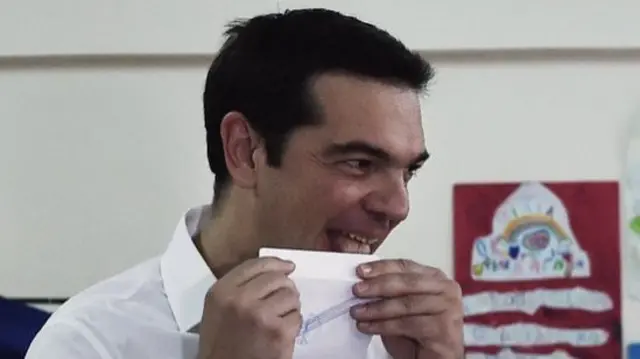 Image source, Getty Images
Image source, Getty ImagesJust over a week ago, Alexis Tsipras stepped on to a podium in Syntagma Square in Athens, writes the BBC's Mark Lowen.
In his trademark open-necked white shirt, his sleeves rolled up, he punched the air.
"I call on you to say a big 'no' to ultimatums, 'no' to blackmail," he cried. "Turn your back on those who would terrorise you."
His thousands of fans roared in approval. The Greek public followed his lead and 61% voted "oxi" ("No").
Roll forward seven days and Greece's prime minister signed the very measures he had fought against. Corporate tax and VAT will rise, privatisations will be pursued, public sector pay lowered and early retirement phased out.
So why did he hold the referendum? Read more here...
